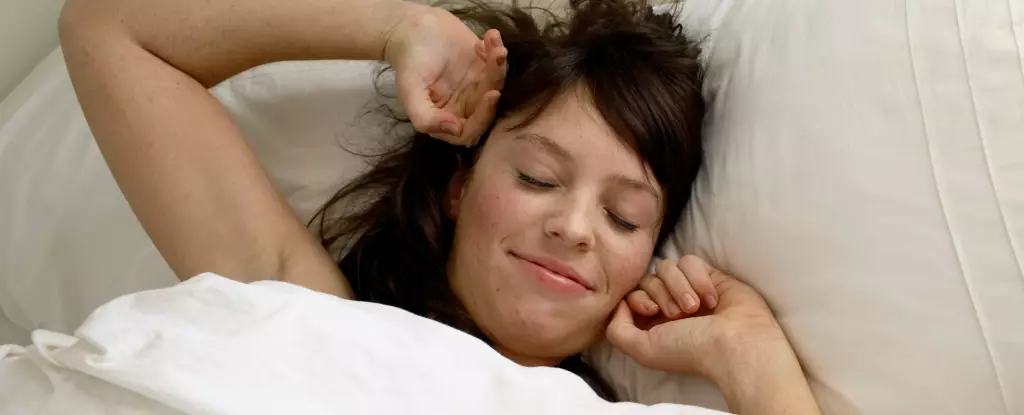In an age where constant stimulation and relentless activity dominate our lives, the notion of stepping back to embrace sleep may seem counterintuitive. Yet, as observed by various thinkers throughout history, including John Steinbeck, sleep can be an unlikely ally in problem-solving and creativity. Steinbeck wisely noted that the “committee of sleep” often resolves issues that perplex us during our waking hours. Recent studies lend credence to this assertion, showcasing how sleep not only aids rational decision-making but also stimulates creative thought processes.
The Science Behind Sleep and Rational Decision-Making
A study conducted in 2024 by researchers at Duke University has highlighted the cognitive benefits of sleep when it comes to decision-making. Participants engaged in a simulated garage sale where they navigated through boxes filled with both low-value and high-value items. Those who made decisions immediately were heavily influenced by the initial items they encountered, often leading them to overlook hidden treasures. However, when given the chance to sleep before making their choice, participants demonstrated a marked improvement in their ability to assess the entire array of items, making more informed and logical decisions.
This phenomenon emphasizes that a good night’s sleep may act as a reset button for our cognitive processes. It allows the brain to regroup and synthesize information more effectively, free from the biases that often cloud our judgment. In a world inundated with information, the ability to process and evaluate data impartially can be invaluable.
Research from 2019 took this idea a step further by exploring how memory cues during sleep can aid problem-solving. Participants were exposed to distinct sounds correlated with challenging puzzles they were unable to solve. When these sounds were later reintroduced during their sleep, the participants exhibited improved performance on the puzzles the following day. Their brains, it seems, were working behind the scenes, making connections during rest that had eluded them in their waking state.
This aligns with a broader body of research indicating that sleep functions as a significant period for cognitive processing. It appears that our minds can work on complex problems even when we are not consciously aware of it, revealing insights and connections that were previously hidden.
Uncovering Insights Through Sleep
The year 2023 saw researchers delve deeper into the complexities of how sleep aids in uncovering insights about relationships between seemingly disparate objects. Participants in this study were tasked with forming associations between various items linked to a described event. Notably, those who enjoyed a full night of sleep were better at uncovering indirect associations compared to those who remained awake. This suggests that during sleep, the brain not only consolidates memories but also fosters a deeper understanding of connections among various pieces of information.
Such findings illuminate the potential of sleep in enhancing our cognitive capabilities, especially in terms of pattern recognition and associative reasoning, which are crucial for effective problem-solving.
The creativity inherent in sleep is further illustrated through the stories of historic figures such as Thomas Edison, who famously napped with a ball in hand. This peculiar method allowed him to tap into the hypnagogic state—a transitional stage between wakefulness and sleep where dream-like imagery presents itself. Research indicates that light sleep, akin to what Edison experienced, can significantly enhance one’s ability to solve complex problems by helping individuals uncover hidden rules or patterns.
In a recent study, scientists found that those who indulged in this delicate state of consciousness while problem-solving performed notably better than those who remained fully alert. The vast realm of hypnagogic imagery, often neglected, may hold untapped potential for creativity, as individuals report bursts of inspiration during this phase.
Further probing into the link between hypnagogia and creativity, another 2023 study found a fascinating correlation. Participants engaged in creative tasks before sleeping were found to benefit when their hypnagogic imagery involved elements related to those tasks. Specifically, when the imagery related to a tree-themed challenge, their capacity for creative problem-solving improved significantly. This suggests that not only do sleep and creativity intertwine, but they do so in a manner directly influenced by our recent experiences and tasks.
What emerges from this body of research is a compelling narrative: sleep is not merely a time of rest, but a dynamic component of our cognitive toolkit. From enhancing rational decision-making to fostering breakthroughs in creative thought, sleep is an essential partner in our intellectual endeavors. By harnessing its power, we can unlock new dimensions in problem-solving and creativity that our conscious minds may struggle to access. As we embrace the value of sleep, we may find that many of our most significant challenges—and our most profound ideas—await us in the realm of dreams.


Leave a Reply